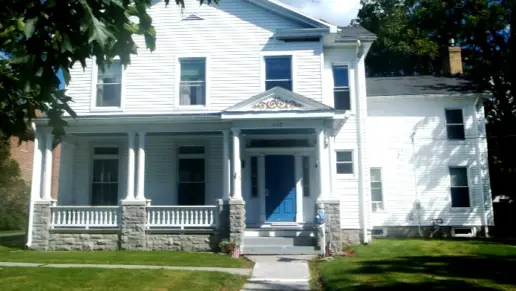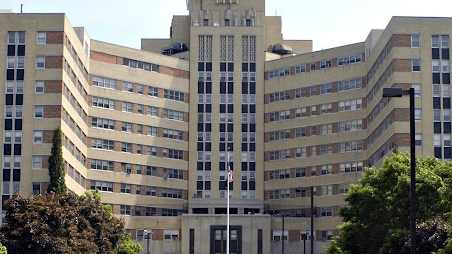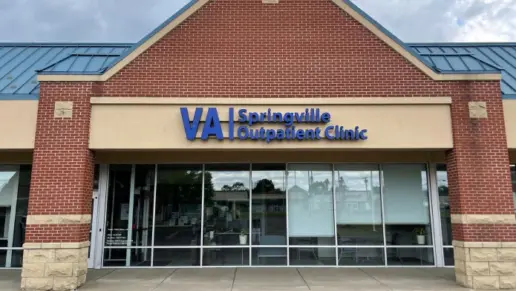My loved one came here to begin treatment for alcoholism and they provided great support. Everyone was friendly and very kind despite my loved one being in a sorry state, and for that I will forever be grateful.
About START Treatment and Recovery Centers – East New York
START Treatment and Recovery Centers-East New York is a nonprofit treatment center located in Brooklyn, New York. They offer medical, behavioral, and vocational services to those suffering from addiction, HIV/AIDS, and Hepatitis C.
START Treatment and Recovery Centers- East New York provides medication assisted treatment and counseling in an outpatient setting.
Medication Assisted Treatment provides FDA approved medications along with comprehensive psychiatric and behavioral counseling. The medications administered are used to support withdrawal from opioid drugs and to help maintain long term abstinence. By combining scientifically proven medications with mental health treatment, the discomfort of coming off of drugs is reduced and there is a higher chance of long term success.
At START Treatment Recovery Centers- East New York, mental health counseling is provided by credentialed alcohol and substance abuse counselors or licensed social workers. Each person’s individual needs are addressed in relation to their addiction and their goals for recovery. If medical issues are also present, counseling staff may refer out to help address the medical concerns so the mind and body are being treated concurrently.
Outpatient treatment programming is a flexible approach to addiction treatment. Common treatments in outpatient are individual therapy, group therapy, and educational classes on addiction and recovery. The goal is to continue to move toward a life of recovery and a suitable aftercare treatment plan that allows for reintegration back into society. Both the counseling services and the mental health counseling services at START Treatment and Recovery Centers- East New York are provided in an outpatient format.
Primary Care is offered as a way to support individuals who are sick or who need help managing their ongoing medical issues. Referrals are placed for a specialist in cases where the client’s needs exceed primary care status or capability.
Latest Reviews
Gallery
Location
Accepted Insurance
Other Forms of Payment
Medicaid is a state based program that helps lower-income individuals and families pay for healthcare. Medicaid covers addiction treatment so those enrolled can use their coverage to pay for rehab. When a program accepts Medicaid the client often pays very little or nothing out of their own pocket.
Self-pay involves paying for treatment out of your own pocket. You can use savings or credit, get a personal loan, or receive help from family and friends to fund your treatment. If you don't have insurance or your insurance plan doesn't cover a specific program, self-pay can help ensure you still get the care you need.
Private insurance refers to any kind of healthcare coverage that isn't from the state or federal government. This includes individual and family plans offered by an employer or purchased from the Insurance Marketplace. Every plan will have different requirements and out of pocket costs so be sure to get the full details before you start treatment.
Medicare is a federal program that provides health insurance for those 65 and older. It also serves people under 65 with chronic and disabling health challenges. To use Medicare for addiction treatment you need to find a program that accepts Medicare and is in network with your plan. Out of pocket costs and preauthorization requirements vary, so always check with your provider.
Addiction Treatments
Levels of Care
Treatments
The goal of treatment for alcoholism is abstinence. Those with poor social support, poor motivation, or psychiatric disorders tend to relapse within a few years of treatment. For these people, success is measured by longer periods of abstinence, reduced use of alcohol, better health, and improved social functioning. Recovery and Maintenance are usually based on 12 step programs and AA meetings.
When you choose drug rehab in New York, you'll participate in a variety of treatments that are designed to help you live a drug-free lifestyle. Common methods of treatment include group, individual, and family counseling, medication management, nutrition, exercise, and management of co-occurring mental health disorders.
Many of those suffering from addiction also suffer from mental or emotional illnesses like schizophrenia, bipolar disorder, depression, or anxiety disorders. Rehab and other substance abuse facilities treating those with a dual diagnosis or co-occurring disorder administer psychiatric treatment to address the person's mental health issue in addition to drug and alcohol rehabilitation.
A combined mental health and substance abuse rehab has the staff and resources available to handle individuals with both mental health and substance abuse issues. It can be challenging to determine where a specific symptom stems from (a mental health issue or an issue related to substance abuse), so mental health and substance abuse professionals are helpful in detangling symptoms and keeping treatment on track.
Opioid rehabs specialize in supporting those recovering from opioid addiction. They treat those suffering from addiction to illegal opioids like heroin, as well as prescription drugs like oxycodone. These centers typically combine both physical as well as mental and emotional support to help stop addiction. Physical support often includes medical detox and subsequent medical support (including medication), and mental support includes in-depth therapy to address the underlying causes of addiction.
Programs





Clinical Services
On-site family and collateral counseling is available for those enrolled at the clinic if they meet the criteria for opioid dependency or for those who are not opioid dependent but, with the patient’s consent, want to participate in scheduled family counseling.
Patients with similar rehabilitative needs gather to discuss daily living challenges or to participate in group activities. Additional information is provided for those interested in further self-help recovery resources such as Narcotics Anonymous (NA), Alcoholics Anonymous (AA) and; Methadone Anonymous (MA).
Individual counseling focuses on each patient’s issues relating to opioid dependency including co-addictions, such as alcohol and tobacco, and barriers to achieving a fully functional and productive life. In individual therapy, a patient meets one-on-one with a trained psychologist or counselor. Therapy is a pivotal part of effective substance abuse treatment, as it often covers root causes of addiction, including challenges faced by the patient in their social, family, and work/school life.
Life skills trainings involve all the skills a person must have in order to function successfully in the world. These include time management, career guidance, money management, and effective communication. Truly successful addiction recovery is based on the ability to not only live substance-free, but to thrive. Life skills teaches the practical necessities of functioning in society, which sets clients up for success in life, and therefore sobriety.
Nutrition therapy, aka medical nutrition therapy (MNT), is a way of treating physical, emotional, and medical conditions through diet. Specific dietary plans are designed by professional nutritionists or registered dietitians, and patients follow them in order to positively affect their physical and mental health.
Accreditations

The Commission on Accreditation of Rehabilitation Facilities (CARF) is a non-profit organization that specifically accredits rehab organizations. Founded in 1966, CARF's, mission is to help service providers like rehab facilities maintain high standards of care.
CARF Accreditation: Yes
Contact Information
494 Dumont Avenue
1st Floor
Brooklyn, NY 11207



